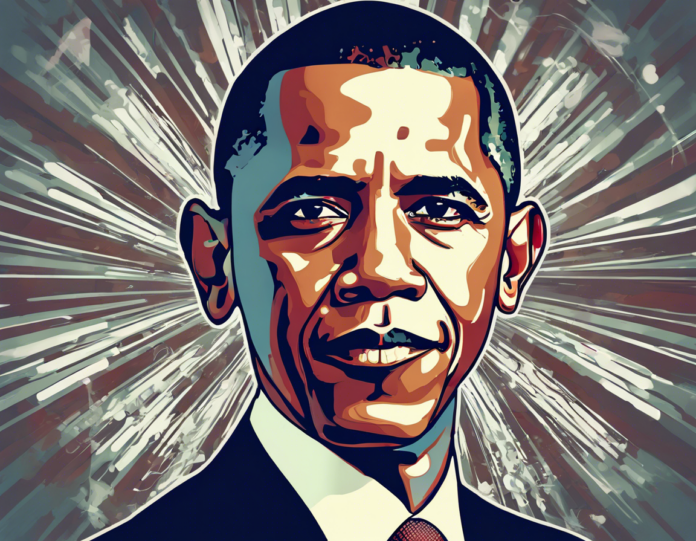As the first African-American president of the United States, Barack Obama’s time in office from 2009 to 2017 was marked by significant accomplishments and challenges alike. His presidency left a lasting impact on American society, politics, and culture, shaping the landscape in ways that continue to reverberate today. In this comprehensive article, we will delve into the political legacy of Barack Obama, analyzing his key policy decisions, his approach to governance, and his broader impact on American society.
Early Life and Political Journey
Born on August 4, 1961, in Honolulu, Hawaii, Barack Obama was raised by his mother and maternal grandparents. He went on to study at Columbia University and Harvard Law School, where he excelled academically and became involved in community organizing. Obama’s political career began in the Illinois State Senate, where he served from 1997 to 2004 before winning a seat in the U.S. Senate. His meteoric rise to prominence culminated in his historic election as the 44th President of the United States in 2008.
Key Accomplishments and Initiatives
Affordable Care Act
One of President Obama’s signature achievements was the passage of the Affordable Care Act (ACA) in 2010, also known as Obamacare. This landmark healthcare reform legislation aimed to increase access to affordable health insurance, protect consumers from insurance industry abuses, and lower healthcare costs.
Economic Recovery
President Obama took office during the Great Recession, inheriting an economy in crisis. Through initiatives such as the American Recovery and Reinvestment Act, the administration implemented measures to stimulate economic growth, create jobs, and stabilize financial markets.
Climate Change and Environmental Protection
Obama made climate change a top priority during his presidency, instituting regulations to curb greenhouse gas emissions, promoting clean energy technologies, and representing the U.S. in international climate agreements such as the Paris Agreement.
LGBTQ Rights
Under Obama’s leadership, significant progress was made in advancing LGBTQ rights, including the repeal of the military’s “Don’t Ask, Don’t Tell” policy, and the legalization of same-sex marriage nationwide through the landmark Supreme Court decision in Obergefell v. Hodges.
Immigration Reform
The Obama administration sought to address immigration reform through executive actions like the Deferred Action for Childhood Arrivals (DACA) program, which provided temporary protection from deportation for undocumented immigrants brought to the U.S. as children.
Leadership Style and Criticisms
President Obama was known for his calm and cerebral leadership style, characterized by his eloquent oratory, pragmatism, and consensus-building approach. However, his presidency was not without criticism. Some detractors viewed his policies as too liberal or insufficiently progressive, while others questioned his foreign policy decisions, such as the U.S. military intervention in Libya.
Impact on American Society and Culture
Symbol of Progress and Diversity
As the first African-American president, Barack Obama’s election was a historic milestone that inspired marginalized communities and symbolized the progress of racial equality in America. His presidency challenged traditional notions of leadership and representation, showcasing a diverse and inclusive vision for the country.
Polarization and Racial Tensions
Despite his efforts to bridge political divides, Obama’s presidency coincided with increasing political polarization and racial tensions in the United States. The rise of the Tea Party movement and the emergence of racially charged incidents like the shooting of Trayvon Martin highlighted deep-seated divisions within American society.
Legacy of Hope and Change
Obama’s campaign slogan of “Hope and Change” encapsulated the aspirational spirit of his presidency, promising a new era of progressive reform and unity. While his administration made significant strides in policy areas like healthcare and LGBTQ rights, the enduring legacy of his presidency remains subject to ongoing debate and interpretation.
Frequently Asked Questions (FAQs)
1. What were some of Barack Obama’s major foreign policy achievements?
- Barack Obama signed the New START treaty with Russia, facilitated the normalization of relations with Cuba, and oversaw the operation that led to the killing of Osama bin Laden.
2. How did Obama’s healthcare reform impact the American healthcare system?
- The Affordable Care Act expanded insurance coverage to millions of Americans, prohibited insurance companies from denying coverage based on pre-existing conditions, and introduced healthcare exchanges for purchasing insurance.
3. What role did Barack Obama play in addressing climate change?
- Obama’s administration implemented the Clean Power Plan to reduce carbon emissions from power plants, committed the U.S. to the Paris Agreement, and promoted renewable energy initiatives.
4. How did Barack Obama’s presidency influence LGBTQ rights in America?
- Obama’s support for LGBTQ rights led to the repeal of discriminatory policies like “Don’t Ask, Don’t Tell” and the recognition of same-sex marriage as a constitutional right.
5. What challenges did Barack Obama face in his efforts to reform immigration policy?
- Obama faced opposition from Congress and legal challenges in his attempts to reform immigration policy, leading to the eventual rescindment of some executive actions by the Trump administration.
In conclusion, Barack Obama’s presidency will be remembered as a pivotal chapter in American history, marked by moments of progress, controversy, and transformation. His legacy as a trailblazing leader who navigated complex challenges with grace and determination continues to shape the political landscape and inspire future generations to strive for a more just and inclusive society.








